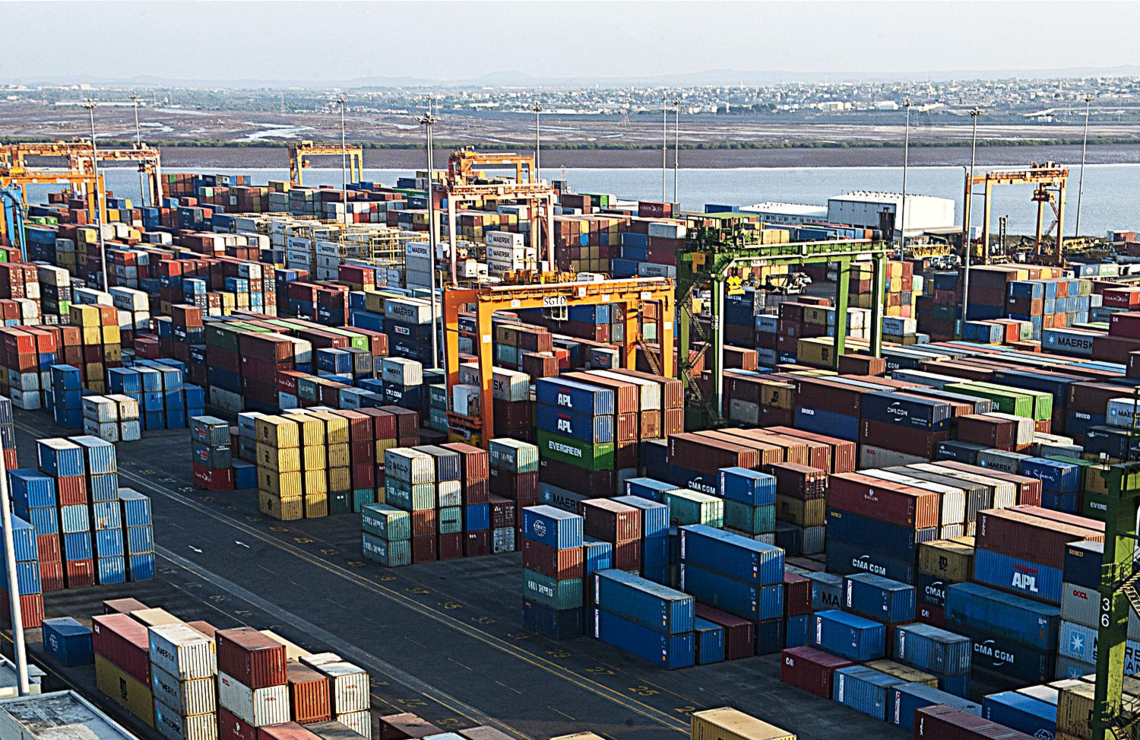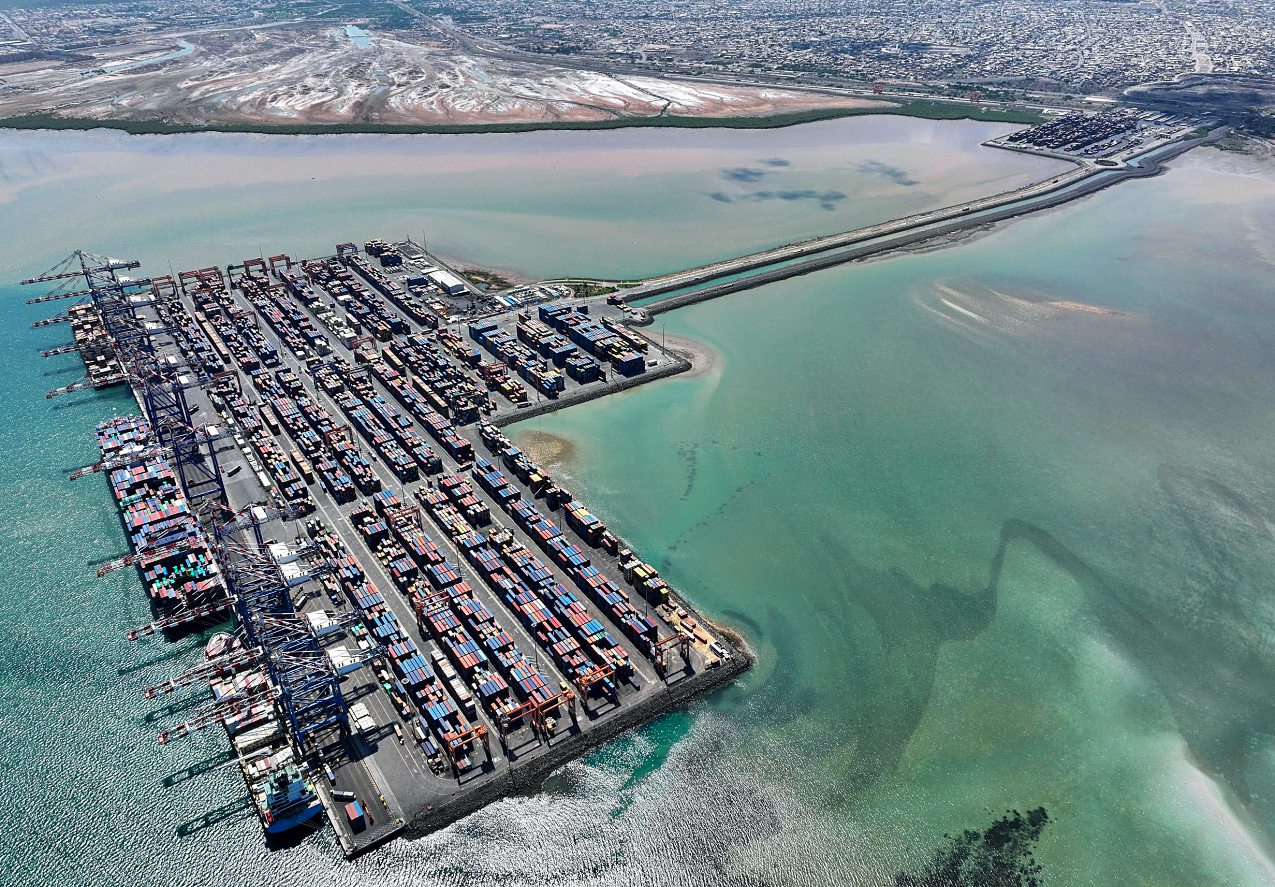
Doraleh -DP World:
Djibouti is not closing the door on an agreement
In conflict for several years, the Djibouti government and the Dubai giant are struggling to reach a compromise that would benefit both parties.
Year after year, the dispute between the State of Djibouti and the Dubai-based port operator DP World continues. Six years after it was expelled from the container port of Doraleh (DCT), the Emirati company has won a number of court cases, in particular before the London Court of International Arbitration (LCIA), without any decisive progress being made for either party. More recently, DP World has sought to have the London rulings enforced in US courts. In its pleas, Djibouti relies on public international law and the principle of state sovereignty. DP World, for its part, relies on the intangibility of contracts and the rules of private international law.
This legal saga underscores the special role played by arbitration bodies in disputes between emerging nations and multinationals. Their decisions are often biased in favour of private interests, and they are also particularly difficult to implement. As one specialist points out, “the port, mine or oil well that is the subject of these proceedings is by definition immovable, and when you obtain an arbitration award in Paris, London or New York, everyone knows full well that you have little chance of enforcing it locally. The claimant will turn to the State's property or assets outside the country. But in Djibouti's case, this approach won’t pay off. The country has no wealth hidden away in the world.” A source close to Djibouti's interests confirms this: “We won't give in. The port of Doraleh is one of our country's strategic assets. Our sovereignty is non-negotiable.”
Proceedings and status quo
However, DP World is sticking to its strategy of legal harassment in this case, by bringing multiple proceedings and refusing to enter into a genuine negotiation process with the Djibouti government. A port expert commented: “The original concession contract was totally unbalanced in favour of DP World. The multinational was a minority shareholder, but remained the sole owner of the operation, with no accountability. The agreement provided for de facto exclusivity throughout the country. Djibouti contested the conditions under which the contract was signed, accusing the former head of its port authority of corruption. It was impossible for this to go on forever. And DP World should have adapted, instead of fighting a rearguard action.”
Let's go back to the beginning. When Ismaïl Omar Guelleh was elected President of the Republic of Djibouti in 1999, he decided to capitalise on the country's key assets its seafront and its strategic location at one of the hubs of international trade. It needed more than the old port of Djibouti City, which was once described as ‘the third largest port in France’. A management contract was signed with DP International (now DP World) in June 2000, to develop the historic port of Djibouti. The deal was a success, and Djibouti and DP World embarked on the construction and operation of a container port. The concession was signed in 2006. DCT was jointly owned by DP World (33%) and the State of Djibouti (66%). However, DP World held 100% of effective control.
In 2013, Djibouti began looking to develop Doraleh and make better use of its port potential. DP World refused to be involved in new investments, and asserted its quasi-exclusivity over the country. The negotiations initiated by Djibouti led nowhere. There was an initial arbitration procedure in 2014, but to no avail. In February 2018, exasperated by DP World's stubbornness and refusal to consider the nation's strategic and sovereign issues, the Djiboutian authorities decided to force the multinational out. DCT's concession was cancelled. The operation of the Doraleh terminal was entrusted to a new 100% state-owned company, SGTD.
As the legal proceedings took their tortuous course, Djibouti was implementing its development programme, with the inauguration of Doraleh Multipurpose Port (DMP), the port of Tadjourah, the port of Ghoubet, the construction of the Djibouti-Addis Ababa railway line, and the launch of the ambitious Damerjog programme. And the floating ship repair yard.
DP World believed that Djibouti had to remain a limited player in the import-export market, particularly in order to serve the huge Ethiopian market. The port giant also intended to gain control of as many ports as possible in this sensitive region, both on the African coast and on the Arabian Peninsula (Jeddah), and to maintain Dubai's Jebel Ali port's leading position. However, as Djibouti developed its offer, it wanted and was able to position itself in the transhipment, maintenance and bunkering markets. The country is well placed on the routes from Asia to Europe and Africa. And it could think even bigger, with a sea-land-air strategy that would enable it to provide freight links as far afield as Central and Southern Africa.
Aware of the stakes involved, DP World went so far as to set up in Berbera, Somaliland, on the outskirts of Doraleh... However, Djibouti has plenty of advantages. The country is peaceful, its currency is freely convertible, and the port and logistics hub is years ahead in terms of infrastructure, know-how and diplomatic soft power. In the space of twenty years, Djibouti has not only established itself as a stable centre for international trade in a tense region but also as a key security partner. In Washington, as in Beijing and Paris, people are sensitive to what is happening here.
Pending progress

Despite the context, the Djibouti authorities are far from being opposed to ‘real’ negotiations. From the outset, they have proposed compensation that would be ‘fair and equitable’. More recently, during the course of 2023, there were discussions between the parties, with visits from both sides. However the discussions are still hampered by the same demand from DP World: control over the port management and a return to a position of exclusivity in the country. On the Djibouti side, a return to the status quo ante is no longer an option. SGTD, the company that took over from DCT, is here to stay. Its performance has improved. And yet, the authorities are not ruling out a return of the port giant to the shores of the Bab el-Mandeb Strait as an active partner, albeit a minority one, with no demands in terms of exclusivity or management. And always respecting the intangible principles of national sovereignty.
The various players still take very different positions. However, the matter moving forward would be in everyone's interest. For Djibouti, it would mean turning the page on a serious dispute and being able to focus on developing the port and its services. It would also mean rekindling ties with a leading company in the sector. And for DP World, it means regaining a role in a strategic country and perhaps turning a corner in its ‘relationship with the global South’. The Emirati company's strategy may seem out of step with contemporary demands for sovereignty and partnerships with emerging countries. We saw this recently in Tanzania, with the signing of a contract that provoked the anger of both the business community and civil society. And, as our aforementioned port expert points out, “the conflict encourages new partners, such as the Chinese giant China Merchants, to invest in Djibouti, gaining market share and influence”.
While awaiting any significant progress on this matter, Djibouti is maintaining its investment policy, such as the development of the Damerjog platform. Last July, the AFC (Africa Finance Corporation) granted a $155 million loan to move the project forward, demonstrating the confidence of the financial community. The government is also attempting to absorb the consequences of the war in Gaza and the Houthi threats to the Gulf of Aden. The commercial impact is very real, but the terminals have adapted as best they can. Located a little further south in the Gulf, the ports have positioned themselves as a key transhipment and maintenance centre for ships from Asia. Some of these ships split their cargoes between smaller vessels, while others preparing to circumnavigate the continent can schedule a maintenance, repair or refuelling stopover, proving if proof were needed that in terms of global logistics, Djibouti is destined to remain the key to the Red Sea for a long time to come.
Discussions are still hampered by the same demand from DP World: control over the port management and a return to a position of exclusivity in the country.